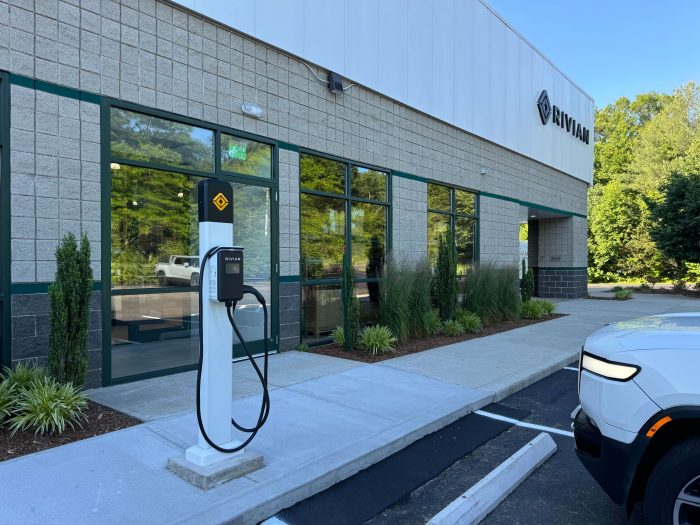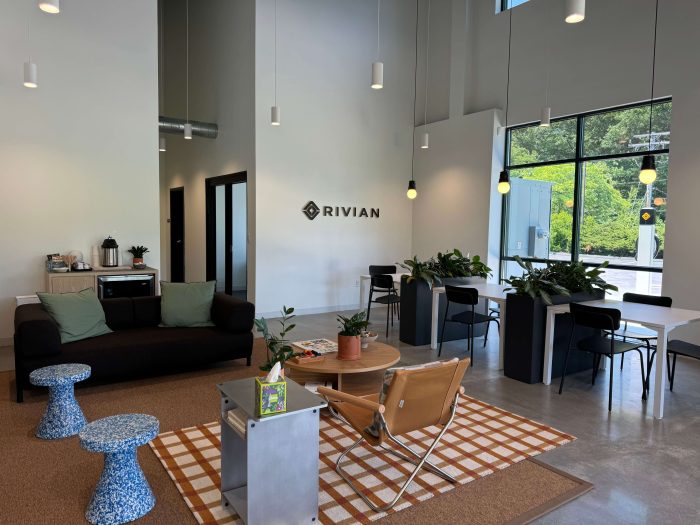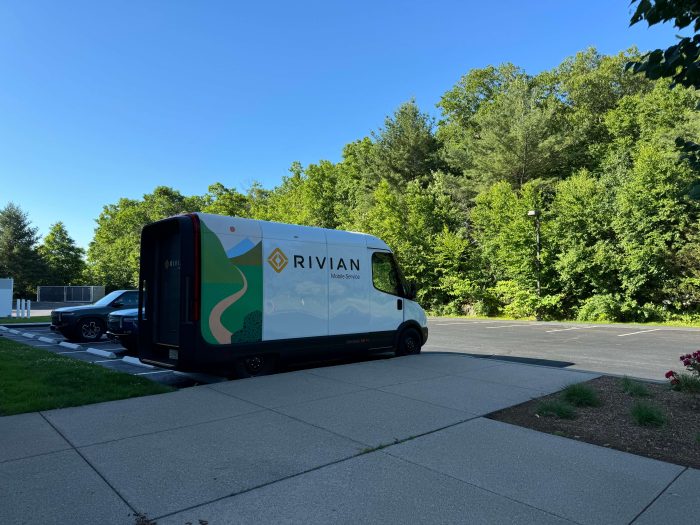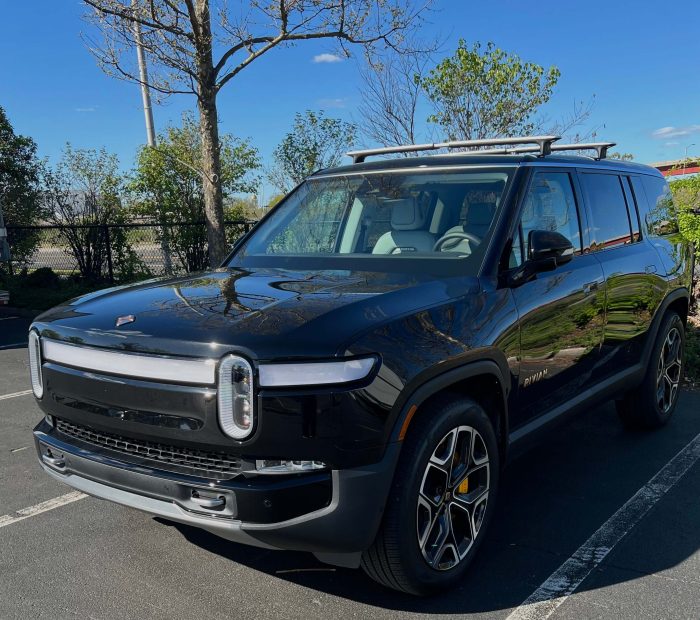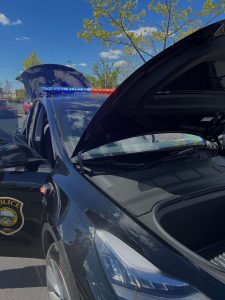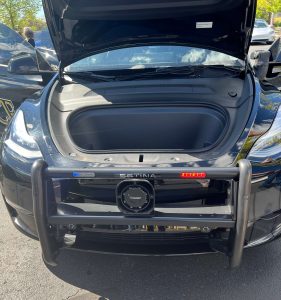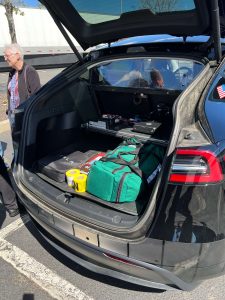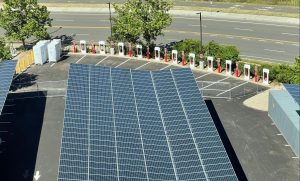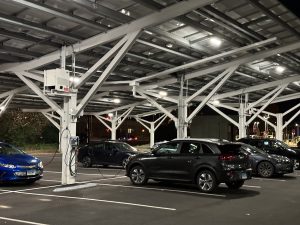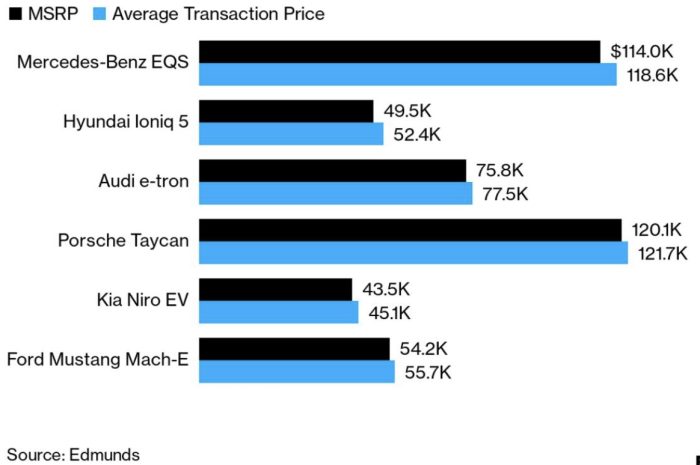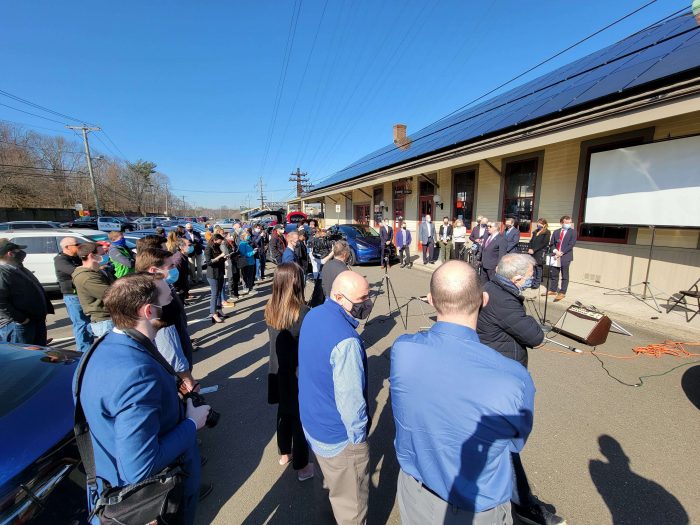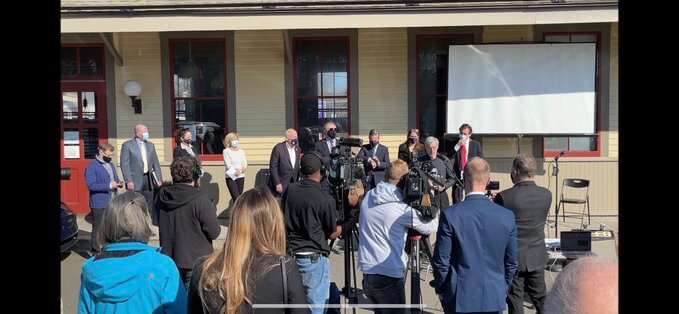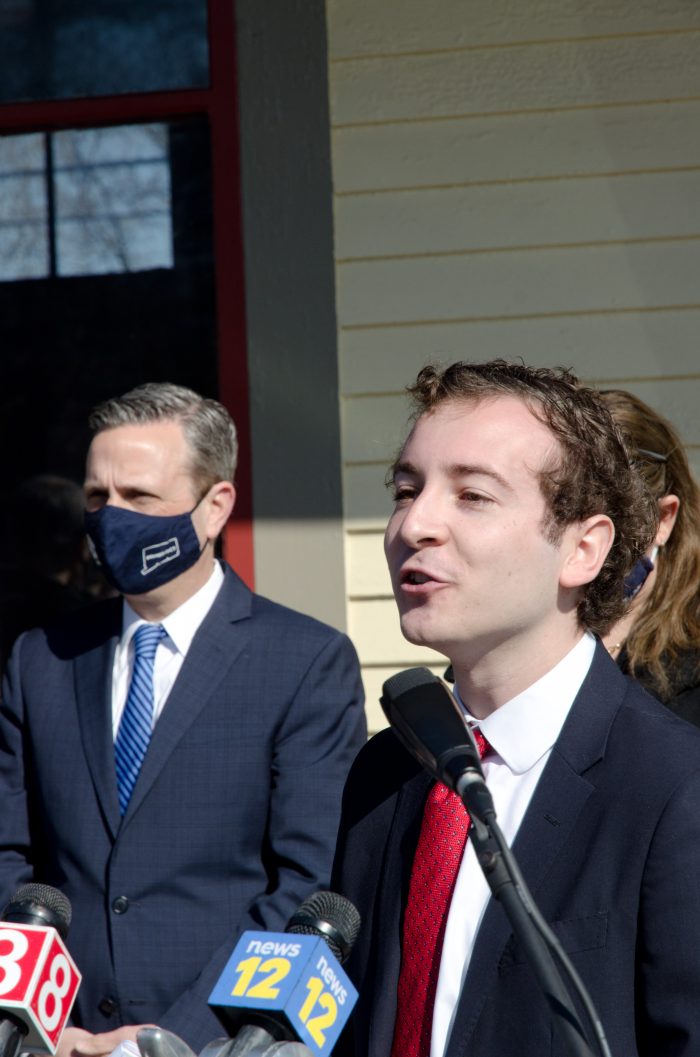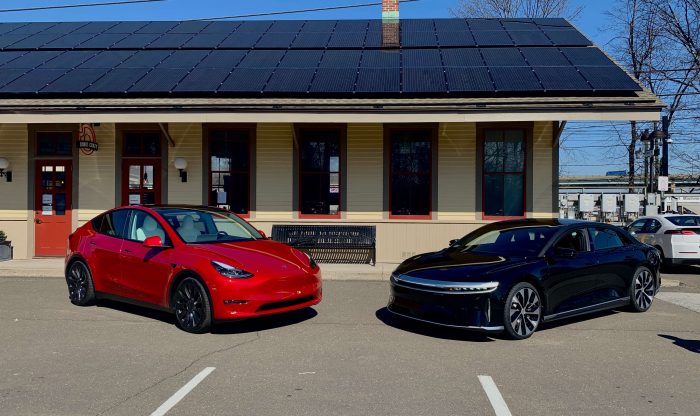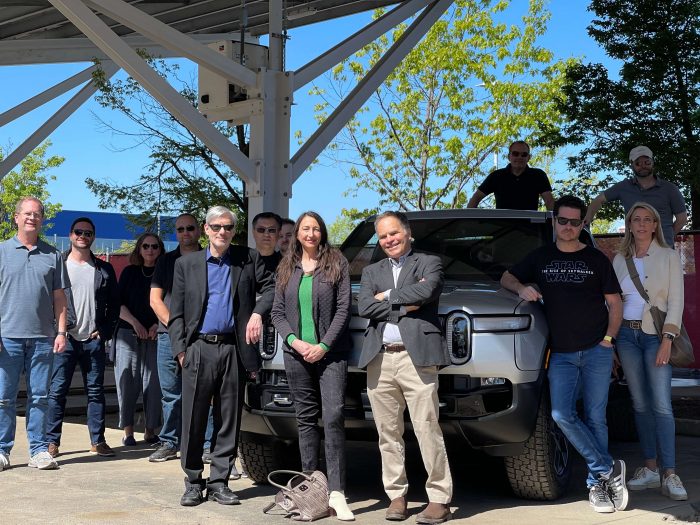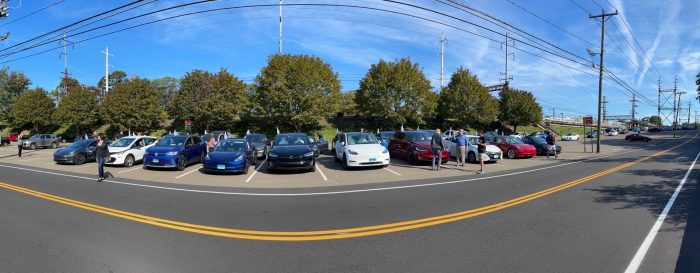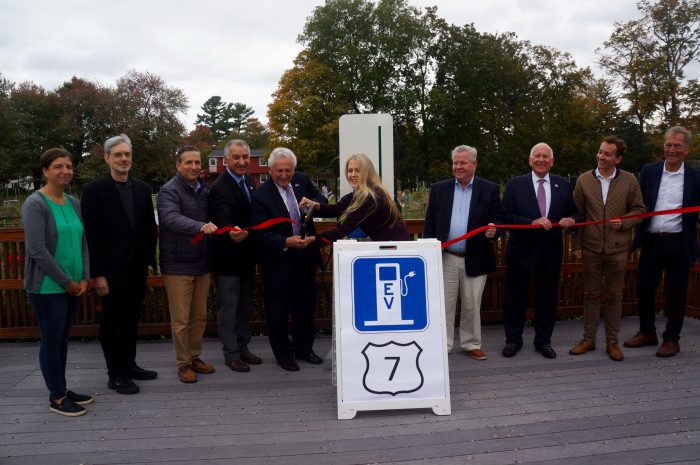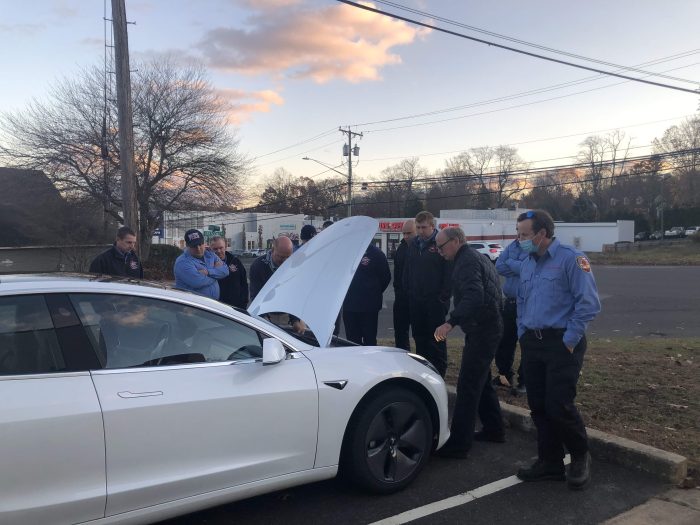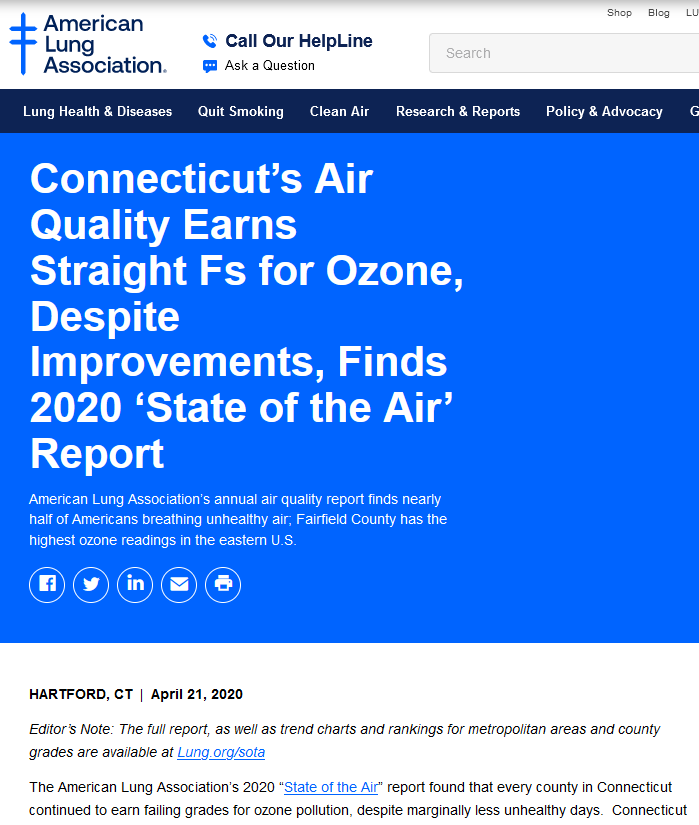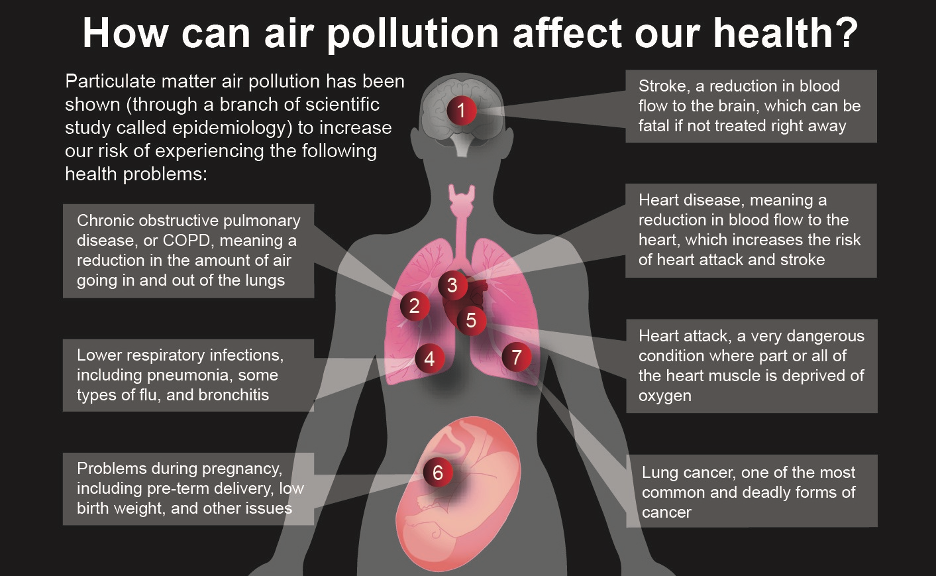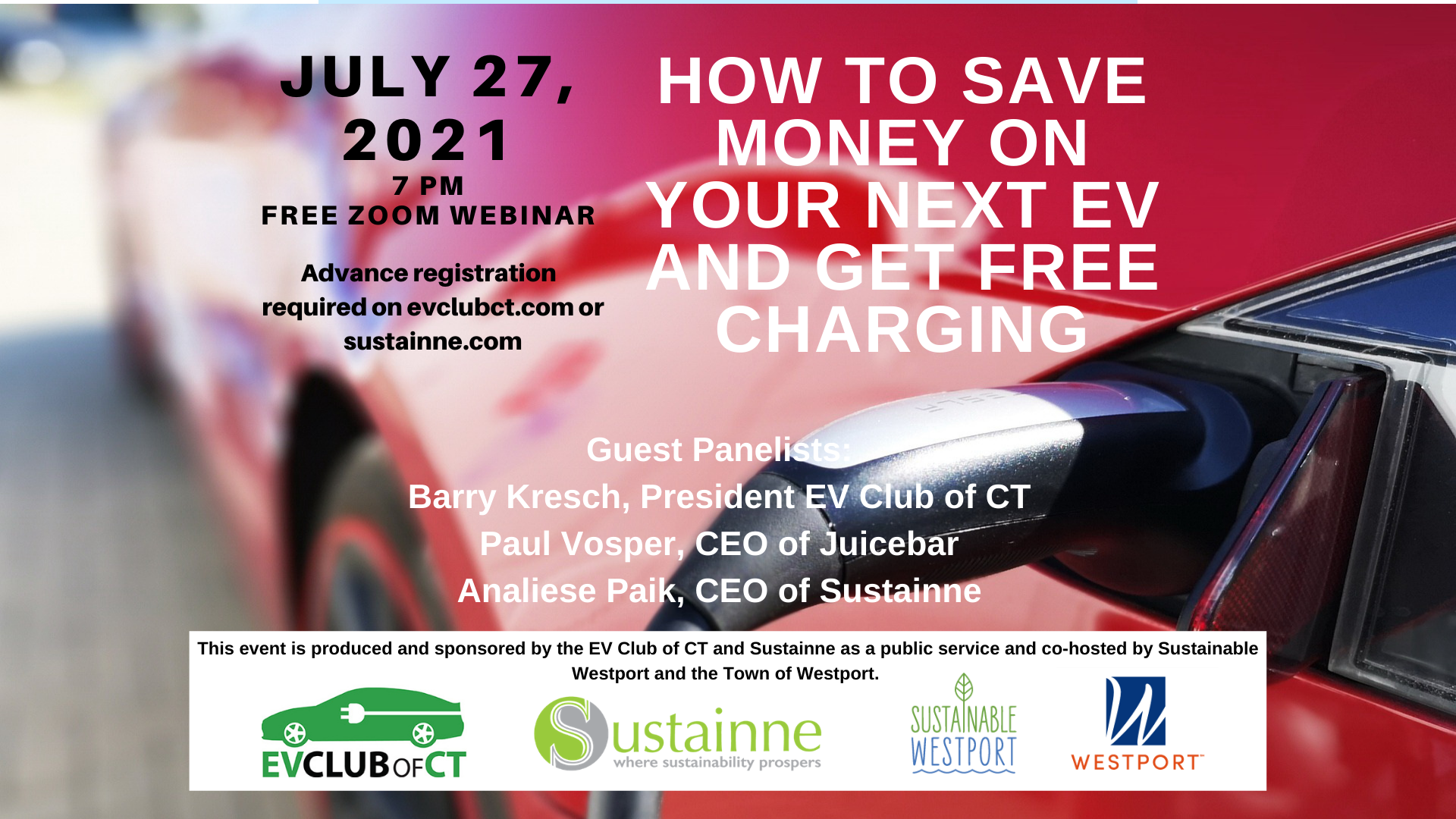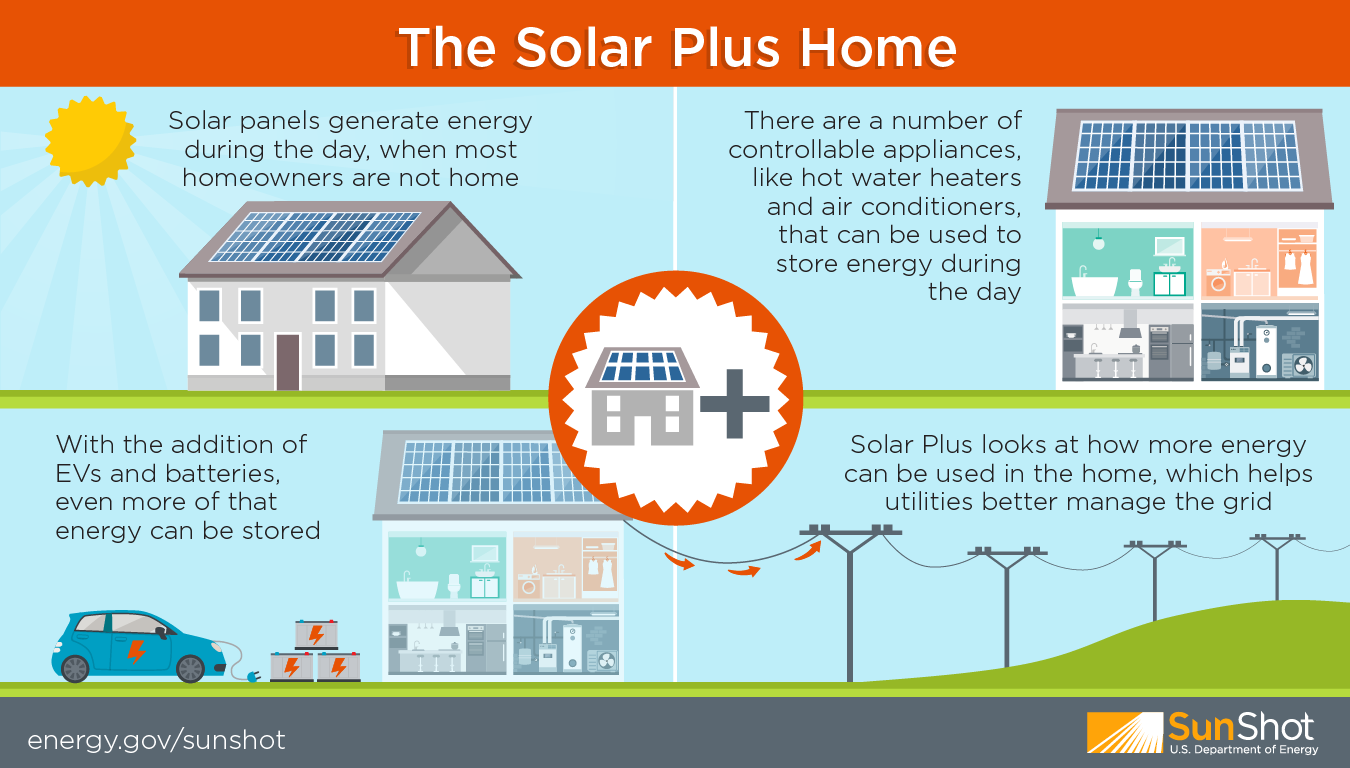Post by Barry Kresch
The Direct Sales Morgue is Enlarged By One More Year as Bill Dies in Committee
As the legislative session inches towards its conclusion on June 7th, we have been through another year without enactment of legislation that would permit electric vehicle manufacturers using a direct sales business model to open stores in CT. These bills would permit manufacturers of exclusively battery electric vehicles (BEVs) that do not have an established dealership network (and are not majority owned by a company that does) to open company stores to sell and deliver directly to CT customers. These are companies such as Tesla, Rivian, and Lucid, with others on the horizon.
The proposed legislation would not affect the arrangements that existing dealerships have with their affiliated manufacturers. Governing the dealer/manufacturer relationship was the intent of the laws when they were passed long ago. All these dealer claims about how the franchise laws protect consumers is just smoke.
CT Insider, reporting on the current legislative session, quotes Transportation Committee Co-Chair, Sen. Christine Cohen characterizing the bill as “controversial,” that it would take up a lot of committee and floor time, and lack the votes to pass.
To quote former State Senator Will Haskell (D-Westport) when he previously raised direct sales, this bill is only controversial in Hartford. The way the bill was killed this year is the way it is always defeated – without being called for a vote. The legislators well know that their constituents support this bill. Many legislators are afraid to cross the dealerships, an entrenched and well-funded special interest. By working behind the scenes to prevent the bill from being called, they can have it both ways. They keep the dealers happy and they don’t have to go on the record opposing their voters, not to mention ding their environmental scorecard. (The CT League of Conservation Voters, the organization that publishes the scorecard, views direct sales a pro-environment measure, but the scorecard can only count votes that are cast.)
This blog wagers that a number of these behind-the-scenes “no” votes would turn to “yes” votes if taken publicly.
The CT Insider reporting also quoted Cohen as citing the actions of Tesla CEO, Elon Musk, as being a factor costing support. It is fair to acknowledge this. He is not helping matters. Direct sales used to be referred to as the “Tesla Bill,” but there are now other companies using this model. This blog sees this as a larger issue of consumer choice, EV adoption, and economics. It is the single most effective thing that can be done to accelerate EV sales.
Dealerships at times object even to their own affiliated manufacturers’ efforts to sell more EVs. For example, Ford’s new Model-e program seeks to more aggressively position dealerships to sell EVs is moving forward, but it has engendered resistance and dealership lawsuits. The CT dealership trade association enlisted several CT federal and state elected officials to speak out publicly against the Ford plan.
Some legislators do openly support direct sales. Included among them is Rep. Keith Denning (D-Wilton), who submitted a direct sales bill this year, which was not raised by the Transportation Committee Chairs. This blog reached out to him and he provided this statement:
“My name is Keith Denning and as a freshman legislator I raised a bill in the Connecticut Legislature for direct sales of electric vehicles to the citizens of Connecticut. While the bill was not raised in committee, I still support the ability of car manufacturers to sell their product directly to the public.
With the revolution of transportation into electric vehicles that we are currently experiencing, the sales of cars directly allows new companies coming into the market to keep their costs down by not having dealerships and can give lower pricing to the consumer.
I am not asking for current dealerships to close, but allowing for a new way for cars to be sold. This builds our economy, allows for small new manufactures to enter the market and makes Connecticut a leader in the transition to the new electric car economy.”
Delaware State Court Rules Direct Sales Does Not Violate Franchise Law
A nearby state, Delaware, now has direct sales. This came via the judiciary. A recent ruling from the Delaware Supreme Court held that the language in the franchise law applies only to existing manufacturer-dealer relationships and is not applicable to new companies that operate sans dealerships. Tesla filed the lawsuit.
For this to have a chance to happen in CT, Tesla or another manufacturer would have to file a lawsuit in state court. They are a legitimately injured party and would have the standing to proceed. The unsuccessful efforts to date in CT to legalize direct sales have only gone through the legislature. One potential downside is that if such an action were to be filed, the legislature would likely punt on dealing with it (which is basically what they’ve been doing anyway) until the process plays out. That could take some time. The Delaware case was appealed before it was taken up by the Supreme Court.
Massachusetts is another state in the region where direct sales came about via a lawsuit. However, if there is one takeaway from the Delaware ruling, it is that franchise laws are not uniform across states. The language of the CT law would have to separately be tested.
Consumers Support Direct Sales
The option of buying a vehicle via direct sales is overwhelmingly favored by consumers. When last the issue was polled in CT, 83% were in favor. Support cut across age, party affiliation and ethnicity. (The polling was fielded by public-opinion firm, GQR, with a sample of 500 likely voters and had a margin of error of +/- 4.4% at a 95% confidence interval. More detail is in the linked page.)
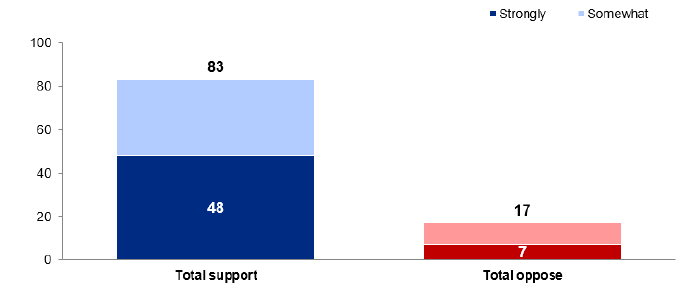
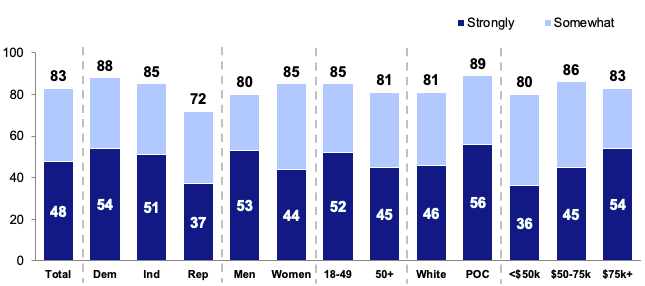
Testimonial Unanimity – When there was open testimony in 2021, 81 written testimonies were submitted to the Transportation Committee. If one excludes the 9 from individuals associated with the dealerships and the 3 from Tesla, Rivian, and Lucid, we are left with 69 from members of the public at large. All 69 of them were in favor of direct sales.
When Sen. Cohen remarks that the bill takes a lot of floor time (i.e. inconveniencing the legislators), the reason is that many people register to offer oral testimony. Public hearings package multiple bills into a day of hearings. When direct sales is on the agenda, it becomes a very long day indeed. In past hearings, some legislators have looked visibly annoyed, and some of them verbalized it, that they have to sit through more hearings about direct sales, where everyone but the dealers are in favor. Legislators, generally speaking, exhort the public to get involved. In this case they do, and ironically, it’s a problem for them. This was mitigated in a narrow sense in the short session of 2022, where by prearrangement, only a small number of people were permitted to testify.
Dealerships Now Seek To Block Service Centers
A more recent insidious development is that dealerships have mobilized to block direct sales manufacturers from opening service centers. They want to make getting the vehicles serviced as inconvenient as it is to buy them.
Hoffman Auto sued East Hartford when they granted a permit to Tesla to open a badly needed second service center to complement the existing one in Milford. East Hartford subsequently withdrew the permit and Tesla did not further pursue it. Dealer representatives showed up in force for a hearing in South Windsor regarding a proposed Tesla service center. More recently, Mario D’Addario Buick and TD Properties sued Shelton and Rivian after the Town granted Rivian a permit to build a service center. Rivian’s motion to dismiss is awaiting a ruling. The dealers latch on to anything they can to throw up roadblocks for these companies.
That New Tesla Service Center – It’s In Massachusetts
Tesla is building a new sales and service center in Springfield, MA. Springfield is just north of CT off I-91. This location will be more convenient for customers in Hartford and points north than Milford. That sound you hear is those jobs and taxes going to MA. This will take some of the pressure off getting a Tesla serviced locally. It doesn’t change the fact that CT Tesla purchase customers have to pick up their vehicles in Mt. Kisco, NY.
Direct Sales = Greater EV Adoption
Every year there has been testimony before the legislature, the dealer representatives talk about how all-in they are for electric vehicles. Then every year, they keep not selling them, or not that many of them. When we look at the data, we see only modest growth.
Tesla has testified that an ideal scenario in its view is that Tesla becomes a smaller slice of a rapidly growing pie. That hasn’t happened. In fact, the Tesla share of registered EVs is higher now than when we began tracking it in 2017.
New Sierra Club Study
The Sierra Club recently released the third wave of its ongoing EV Shopper Study with fieldwork conducted in 2022. These studies have been fielded in 3-year intervals. Consumers visit or call dealerships to ask about EVs, see if the salespeople are able to answer basic questions, find out whether there is a charged vehicle available for a test-drive, etc. The findings of the new study are as disheartening as those of past studies.
- 66% of car dealerships did not have a single EV for sale. Keep in mind, this includes both new and used vehicles.
- To some degree, supply-chain issues persisted into 2022, but of the 66% of dealerships without EVs, 45% of them said they had no interest in selling EVs.
These numbers are exclusive of companies such as Tesla, Rivian, and Lucid that do not have dealerships, and which obviously want to sell EVs. Also, they are national numbers. The Sierra Club does break the numbers down by region, but the numbers in the Northeast were not that different from the overall profile.
Some dealers make an effort, but we are still a long way from where most or all dealers act like they actually want to sell EVs. This is consistent with what we have been seeing in our ongoing analyses of CT CHEAPR rebate data.
Atlas Public Policy – Direct Sales Would Remove an Estimated 42 Million Metric Tonnes of CO2
Atlas Public Policy builds analytical tools to help policy makers and businesses make decisions. Atlas, in conjunction with the Electrification Coalition, undertook an analysis to assess whether a state’s adoption of direct sales accelerates EV adoption. Their findings were that, indeed, it does. From the report:
- Consumers have reported poor EV buying experiences at dealerships,
- Dealers are incentivized to sell internal combustion engine vehicles rather than EVs due to the dealership revenue associated with future servicing needs,
- Dealer franchise laws add costs for consumers, and
- Giving consumers the freedom to buy via direct-to-consumer models leaves both consumers and manufacturers better off.
The report goes on to forecast what the emissions impact would be if direct sales were to be adopted country-wide. Because it is a forecast, it presents its findings as a range. The midpoint of the range would result in the removal of 42 million metric tonnes of CO2 in the period of 2023-2030.
Bloomberg Analysis
Bloomberg published an opinion piece entitled, “Car Dealership Laws Aren’t Fit for the Electric Age,” in which they looked at EV adoption in open vs. closed states. (The article is behind a paywall.) The results were quite striking with over 3X the EV adoption rates in states with uncapped direct sales, compared to those prohibiting the practice.
The legacy Automotive Industry Is Often Its Own Worst Enemy
One could be forgiven for thinking that the strategy of many of the established automotive companies has been denial.
Ford is a notable exception. They made the Model-e gambit, followed last week by the hugely consequential announcement that the company has negotiated an arrangement with Tesla to give Ford owners access to the Tesla Supercharger network, and that beginning in 2025, Ford vehicles will be manufactured with native Tesla-compatible connectors. In our view, the Supercharger arrangement is a smart move for both companies. It potentially could influence other companies to follow suit. (We understand that existing Ford EV owners will be able to get adapters. We would be interested in hearing from Ford owners who are readers of this blog about how and what Ford is communicating. Please leave a comment.)
CCS stands for Combined Charging Standard and NACS stands for North American Charging Standard. CCS is backed by most manufacturers. Where it says “Tesla” below, it is the NACS connector, which is the standard Tesla uses and has been pushing to be the universal connector without much success until now. You be the judge of which is the more elegant design. Between Tesla and Ford (and, I suppose, I shouldn’t overlook Aptera; though they haven’t delivered any vehicles yet, they still get points), the majority of EVs on the road will have NACS.
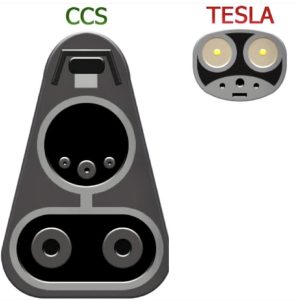
Not all companies are moving aggressively like Ford. Stellantis is a major manufacturer, the owner of Jeep, Chrysler, Dodge, Ram, Alfa Romeo, Fiat, Maserati, and several others. And yet if we look at their profile in CT, they are nearly invisible. They have a modestly successful Jeep Wrangler PHEV and that is about it. (Stellantis represents 1553 of 30,017 EVs registered in CT as of Jan 1 – 1,200 from Jeep, 317 from Chrysler, 36 from Fiat. Only the Fiat are fully electric – BEV and they are not currently being manufactured.) Now, as they play catch-up – they announced a new EV platform – they are laying off thousands. From Yahoo Finance: “The company has about 56,000 workers in the U.S., and about 33,000 of them could get the (buyout) offers.”
Larger Environment
While we’re fighting over the right to buy an EV directly from the manufacturer, China is banning the sale of ICE vehicles that don’t meet its new, stringent emission standard (VI B) by July 1. That could send shock waves across the world as inventories of unsellable ICE vehicles grow. We are seeing states ban the sales of new ICE vehicles as of around 2035.
Closing Thoughts
How dealerships and the legacy automobile industry writ large will ultimately fare is up to them. If they innovate and compete, they’ll be fine. Some of them have embraced EVs, but judging by the data, not nearly enough. In CT, the dealership special interests have thus far been given the message that they can sit back and not worry about it, that change can happen on their timetable, negative consequences for those of us who live in the state be damned.
There are many EV Club members who own or have ordered a Tesla, Rivian or Lucid. For those of us who have made the trek to Mt. Kisco to pick up a Tesla, it stares us in the face that the jobs to build, staff, and maintain the facility are in New York, and the company pays property taxes to Mt. Kisco and a franchise registration fee to NY. Manufacturers selling directly, a large and fast growing industry, are not choosing CT to set up manufacturing facilities, despite our ports, roadways, railways, and highly educated and trained workforce. We lose twice.
Today’s headlines and accompanying disruptions in the oil and gas market punctuate the urgency of moving away from fossil fuels. Allowing direct sales will help CT meet its EV adoption objectives, create green jobs, reduce pollution, and, most importantly, it is what is right for the citizens of CT.
How Can You Help
We agree with Rep. Denning that a direct sales law is not anti-dealer; it is pro-consumer and pro-CT.
We have to ask ourselves why we’re okay with making it harder for CT residents to buy an EV, not easier. Why are legislators ignoring the will of the people and bowing to the dealerships?
Our EV Club is not a political organization (501(c)4). We do not have paid lobbyists prowling the Capitol. We can only operate as a grassroots organization evangelizing for EV adoption, promoting free competition, and being open to new and innovative ways of doing business.
You can be sure that legislators hear from the dealerships and their lobbyists whenever there is a bill. They have to hear from as many of us as possible. Even if you have emailed or called previously, every year is a new game.
The 2024 legislative session will be a short session, which happens in election years. The rules are more restrictive and there may well not be a direct sales bill introduced. But as we get into election season, that will be a good time to make your voice heard.
